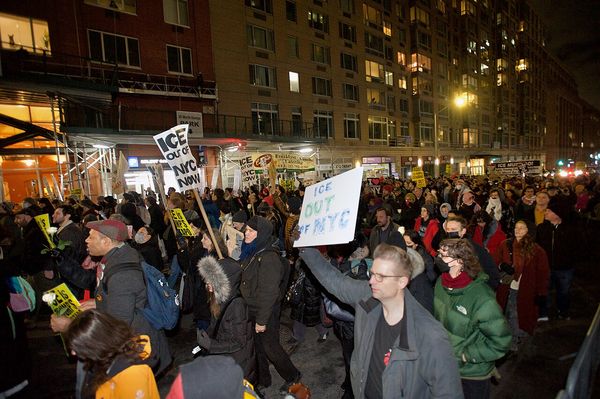SCOTTISH Government revenue is growing faster than spending, new official figures show despite declining income from North Sea oil and gas.
Finance Secretary Shona Robison said that Wednesday’s Government Expenditure and Revenue Scotland (GERS) figures showed that the SNP were “helping support sustainable public finances”.
The figures are controversial because while they show the amount of money coming into Scottish Government coffers measured against outgoings, they also assume liabilities for the Holyrood administration that independence campaigners argue are not the complete picture.
The latest GERS figures, which cover the financial year 2024-25, showed that the Scottish Government’s £91.4 billion in revenue was enough to cover all day-to-day devolved spending and all reserved social security, including the state pension, which amounts to £84.9bn.
Devolved revenue grew by 9.7% in 2024-25, as devolved expenditure increased by 6.8%.
However, the net fiscal balance has worsened because of declining income from oil and gas.

Overall, there was a deficit of 11.7% of gross domestic product (GDP), a measure of the size of the economy.
Excluding North Sea revenues, this 14.4% of GDP, or £30.6bn.
Scotland’s overall state revenue was estimated as £91.4bn, some 8% of total UK revenues, of which £4.1bn came from the North Sea.
Non-North Sea revenue increased by £2.2bn in 2024-25, an increase of 2.5% as growth in income tax was offset by falling National Insurance contributions.
Total expenditure for Scotland by the Scottish Government, UK Government, and all other parts of the public sector was £117.bn.
Spending increased by £6.1bn (5.5%), reflecting increases in spending on social protection and health.
These figures however include estimates of UK Government spending in Scotland which are disputed by the Scottish Government.
Robison pointed to the portion of defence spending allocated in the estimates for Scotland, saying: “GERS allocates Scotland a population share of reserved UK spending rather than accounting for real expenditure. For example, UK defence expenditure is listed as £5.1bn, but only £2.1bn was actually spent with industry in Scotland in 2023-24.”
She added: “The decisions we have taken here in Scotland are helping support sustainable public finances. For the fourth year in a row, devolved revenues have grown faster than devolved expenditure.
“Scotland’s public finances are better than many other parts of the UK, with the third highest revenue per person in the UK, behind only London and the South East.
“The GERS statistics reflect only the current constitutional arrangements – of Scotland as part of the UK – and not an independent Scotland with its own policy, decisions on defence spending and the economy.”
Robison also highlighted how Brexit had “hit Scotland’s revenues by £2.3bn” while the ballooning cost of financing UK debt added pressures worth £500 million.
She added: “Falling oil prices and a decrease in extraction present challenges going forward, but we are clear in our support for a just transition for Scotland’s valued oil and gas sector, which recognises the maturity of the North Sea basin and is in line with our climate change commitments and energy security.”
The SNP is facing pressure from within its ranks to attempt to combat the negative publicity which accompanies the publication of GERS figures, which are used by Unionist politicians to argue that Scotland could not afford to become independent.
Simon Barrow, the national secretary of the SNP Trade Union Group (TUG), told The National that part of this should involve using the Scottish Government's budget statements to show what would be possible with independence.
He said: "The annual row over GERS figures is a political charade in which those opposed to independence routinely compare apples with oranges.
“To state the obvious, how Scotland would perform as a fully self-governing country with complete economic and tax powers at an unspecified future date cannot be reliably deduced from current GERS figures reflecting the decisive choices by the UK Government, about which Professor Richard Murphy and others have raised separate questions.
“Instead, the SNP TUG has been proposing for some time that when the Scottish government finalises its annual Holyrood budget, it should do so alongside clear indicators as to what different and better decisions could be made with the benefit of the full powers of independence, reasonably including an allowance for some additional costs too.
“It is important that the Scottish electorate should understand the real limits of devolved powers, the way they are presently being used to maximise benefit to the Scottish people, and the transformatory possibilities and challenges that could exist with Independence.”







